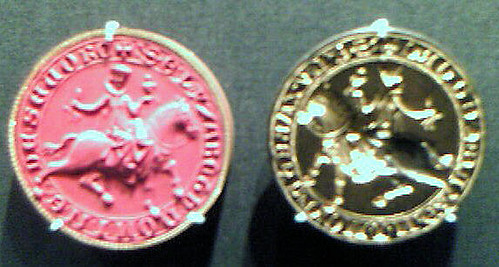I’ve been in Perth for the weekend for a wedding (not, as you might have guessed the Australian one), so have been enjoying a short course in traditional Scottish culture. Among the notable elements was the handfasting element in the ceremony – the physical binding of the couple’s hands together – the bride being piped in and out, and the full-on ceilidh (pronounced “kay-lee” I’m assured) afterwards.
The lesson I learnt from that one: next time wear flat shoes – traditional Scottish dancing and heels don’t go well together – although my ankles will recover eventually, however, I’m sure. But it did make the men in their kilts – by no means all Scots but a brave collection crossing from Canada to Latvia – look very good. And it made me think of those days a few centuries ago when fashion meant the men would have been the peacocks of any party.
Perth itself struck me as a city of boom and bust. There’s very little medieval surviving here, someone I was chatting to said that was the religious wars that did for that, and then along came Cromwell to do some further damage (a note on the high street explains he destroyed the ancient mercat (market) square). And then there were the Jacobite rebellions.
But there was obviously a huge building boom after that, with a great many surviving Georgian buildings in the town, followed by a Victorian boom in civic buildings and a 1960s boom in both flats and (some) public buildings. Well the Georgian ones, such as the James VI Hospital, are nice to look at…
The feel now is of a city with some people doing very nicely indeed – are were boutiques and restaurants with almost London prices, but Poundstretcher is also doing a roaring trade, and there are a surprising number of rough sleepers for a city of this size, plus some of the most aggressive beggars I have encountered anywhere in the UK.


 About
About